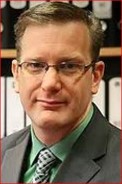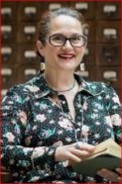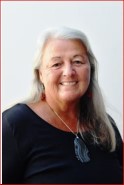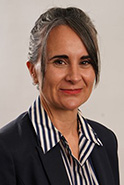Meet our newly established Board for State Records Authority NSW.
The Board members bring a diverse range of expertise and experience in history, use of State records, First Nations cultures and more.
Dr Brian Lindsay, Board Chair |
|
 |
Dr Lindsay holds a PhD in History from the University of New South Wales and has varied professional experience in both the history and public sectors. Dr Lindsay is currently a professional researcher and author. Dr Lindsay is Council Member of the NSW Heritage Council. |
Ms Amy Beaumont, General Counsel at Port Authority of New South Wales |
|
 |
Ms Amy Beaumont is an executive in a highly regarded state owned corporation with extensive experience in risk management developed from the delivery and management of diverse legal services in Australia and internationally within corporate and NSW Government. |
Dr Naomi Parry Duncan |
|
 |
Naomi Parry Duncan is a social historian and heritage consultant. Her PhD was written from State Records in NSW and Tasmania and examined the experiences of the Stolen Generations and non-Indigenous children in government welfare systems. She was the NSW Historian on the Find & Connect web resource, working with stakeholders to improve access to both State Records and the archives of charities. She also worked on the Royal Commission into Institutional Responses to Child Sexual Abuse and the Dictionary of Sydney and lectured in family history at the University of Tasmania. She is a Member of the Professional Historians Association of NSW/ACT, the History Council of NSW and the Australian Historical Association. |
Dr Elizabeth McEntyre |
|
|
|
Dr Elizabeth McEntyre is a Worimi and Wonnarua Woman Elder belonging to Lands and Waters spanning Port Stephens, the Great Myall Lakes, the Barrington Tops, and the Hunter Valley in NSW. Dr McEntyre is an accredited mental health social worker in disability and justice with a doctorate in social work and criminology. She is the Aboriginal Official Visitor of prisons state-wide with the NSW Inspector of Custodial Services, and a member of the NSW Mental Health Review Tribunal conducting civil and forensic hearings. In addition to this work, Elizabeth is a Board Member of Mindaribba Local Aboriginal Land Council (covering Maitland and Lower Hunter Valley) and Hunter Local Land Services (covering Lower and Upper Hunter Valleys, Mid North Coast, Lake Macquarie, Newcastle areas)and a Board Director of Indigenous Allied Health Australia and Life Without Barriers. Dr McEntyre is an appointed member of the NSW Aboriginal Fishing Trust Expenditure Committee, NSW National Parks and Wildlife Hunter Central Coast Regional Advisory Committee, and Port Stephens – Great Lakes Marine Park Advisory Committee. She is a member of the Australian Health Practitioner Regulation Agency Community Advisory Council and Culturally Safe Notifications Working Group, the Aged Care Standards Clinical Expert Working Group for the Australian Commission on Safety and Quality in Health Care, and the Department of Health and Aged Care Quality Aged Care Consumer Reference Group. As an Aboriginal-Led research consultant, Elizabeth advises several professional associations, service providers, Universities and consultative groups including the Royal Australian and New Zealand College of Psychiatrists (RANZCP), Greening Australia, University of Sydney, and University of NSW. |
The Hon. Justice Mark Leeming |
|
|
|
Justice Mark Leeming has been a Judge of Appeal of the Supreme Court of New South Wales since 2013. Before then, he was a barrister for 18 years, including as a senior counsel since 2006. He has also taught at the University of Sydney, part-time, since 1995, where he is Challis Lecturer in Equity. He has written or co-written 11 books and numerous academic articles on law and legal history. He is a member of the Editorial Boards of the Journal of Equity, the Australian Bar Review and the Contract and Commercial Law Review, a member of the Advisory Committee of the Francis Forbes Society, and an Honorary Bencher of Lincoln’s Inn. |
The Hon. Dr Sarah Kaine, MLC |
|
|
|
Dr Sarah Kaine is a member of the NSW Legislative Council. Her policy areas of interests are labour standards, gender equity, sustainable fashion, procurement, the gig economy, university governance and artificial intelligence. Sarah completed an economics degree at the University of Sydney while working at the AWU before going on to become an Organiser at the ACTU. After having children, Sarah completed a PhD at the University of Sydney and was an Associate Professor at UTS for 10 years before moving into her role as Director, Industrial Relations Inspectorate in the NSW Department of Premier and Cabinet. She was elected to the NSW Legislative Council in the 2023 Elections. Sarah has over 15 years of engagement in research that has explored labour standards set outside the bounds of labour law and other forms of regulation. As an academic Sarah developed a public profile as a ‘go-to’ commentator on workplace issues. Her research, and public advocacy emphasised the importance of organised labour in protecting the right to dignity and fairness at work as well as recognising the contribution made by women in the workplace and the labour movement. |
Mr Scott Johnston |
|
|
|
Scott Johnston is the Deputy Secretary of Revenue NSW and has legislative responsibilities as the Chief Commissioner of State Revenue and Commissioner of Fines Administration. Prior to joining Revenue NSW in 2020, Scott was Acting Commissioner at the NSW Public Service Commission. Scott is a highly experienced senior leader with a career spanning the Australian and United Kingdom public sectors. He is passionate about shaping future workforce strategy through evidence-based decision making, driving innovation, building digital capability, and advocating for diversity and inclusion. Scott holds an Executive Master of Public Administration from the Australian New Zealand School of Government and the University of Sydney, a Graduate Diploma of Statistics from Victoria University, and a Bachelor of Commerce from the University of Newcastle. |
Annette Pitman, Museums of History NSW CEO |
|
 |
Annette is passionate about art, culture and architecture, and is deeply interested in activating heritage assets, leveraging them to tell stories that are important to our community identity and finding ways to enable adaptive reuse and public engagement. She has led a number of transformational civic projects, including the Walsh Bay Arts Precinct, Hamer Hall at Arts Centre Melbourne, The Gunnery, Theatre Royal, Connecticut Science Center and the Melbourne Park Tennis Centre. |
Functions of the Board
Under the State Records Act 1998, the Board is an advisory board with the following functions:
- to determine the policies and strategic plans of State Records NSW
- to grant approvals for the purposes of sections 13 (Standards and codes of best practice for records management) and 21 (Protection measures) of the Act.
Board charter
Schedule 2 of the Act lists the provisions relating to the constitution and procedure of the Board.
Part 7 of the Act deals with the Board as follows:
- Section 69 Establishment of Board
- Section 70 Functions of the Board
- Section 71 Director may attend meetings of Board
Board appointments
Members appointed to the Board represent parliament, the judiciary, state-owned corporations, local government, the private sector, the history profession, recordkeeping and First Nations cultures. Appointment is for a term of up to three years and members may not hold office for more than two consecutive terms.
Furthermore:
- All appointments to the Board follow the Public Service Commissioner’s Appointment Standards: Boards and Committees in the NSW Public Sector.
- Decisions about the remuneration of individual boards and committees are guided by the Classification and Remuneration Framework for NSW Government Boards and Committees (the Framework) as announced in the Premier’s Memorandum 2012–18.
- The Department of Premier and Cabinet provides guidance on NSW Boards and Committees at www.dpc.nsw.gov.au/programs-and-services/boards-and-committees/.
- New Board Members appointed to the State Records Authority NSW Board https://staterecords.nsw.gov.au/news-and-media/new-board-members-appointed-the-state-records-authority-nsw-board



